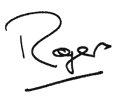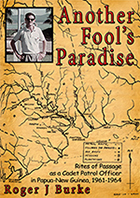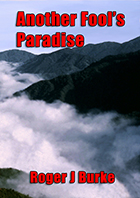READ ALL ABOUT IT!

NOW RELEASED
... after years in production!
For all readers of English literary fiction!
Get it at Google Play t'day ... cost of a black coffee, is all.
NOVEL WORDS
... on the loose!
Catch it at The App Store also.
Defining 'homonym' and 'homophone' may be as difficult as finding a Yeti!
"Well ... what is a homonym anyway?"
Have you ever noticed that it's sometimes really difficult to pin down the definition of a word?That's pretty common when you look at different dictionaries.
I was surprised, however, to find that the term 'homonym' also has different definitions, depending upon which dictionary you consult.
For example, when I look up 'homonym' in my Oxford, I find the following definition:
-
Homonym: "Word of same form as another but different sense (e.g. POLE(1), POLE(2))".
Although that says nothing about words that sound the same, well, that seemed OK, I thought. But, what does Webster say? Well ... when I looked, I found something different again:
-
Homonym: "a word having the same sound, or the same spelling and sound, as another which has a different meaning, e.g. 'bare' and 'bear'".
Well, now ...
that's not quite the same as Oxford, is it?
The Americans seem to stress the
sound
of the word, whereas the English emphasize the
spelling.
This was becoming more puzzling the further I got into it!
Hence, when I consulted my trusty Chambers (a good friend of 40 years or more), I wasn't at all surprised (by now) to find something different again:
-
Homonym: "a word having the same sound as another but a different meaning and origin."
So, in this case, Chambers appears to
ignore spelling altogether and concentrate upon sound only.
But perhaps, by inference, Chambers doesn't care whether the words are spelt the same or differently?
So, finally ... when I looked up the MacQuarie Dictionary, I was prepared for the worst - and I got it!:
-
Homonym: "a word like another in sound and sometimes in spelling, but different in meaning, as meat and meet.
Looks like the Australians are also trying to have it both ways,
but they're not quite sure, are they?
Is Oxford therefore all wrong? Is Webster sitting on the fence, trying to have it both ways also?
Who is right? Or, are they all wrong?
As somebody once said,
"Is a puzzlement!"
In summary, here is what the four are saying:
-
Oxford: Homonyms are words spelt the same way, but different meaning;
-
Webster: Homonyms are words which sound the same and/or spelt the same, but different meaning;
-
Chambers: Homonyms are words that sound the same, but different meaning; and
-
MacQuarie: Homonyms are words that sound the same and are - maybe - spelt the same, but with different meaning!
The only point of absolute agreement concerns "different meanings".
To make matters worse, there is the question of homophones.
Once again, there are some differences:
-
Oxford: Homophone - "a word having the same sound as another, but of different meaning or origin."
-
Websters: Homophone - "a homonym, a letter having the same sound as another."
-
Chambers: Homophone - "a word pronounced alike with another but different in meaning."
-
MacQuarie: Homophone - "a word pronounced the same as another, regardless of spelling as heir and air."
Is there any point of absolute agreement with those four definitions? It seems to me that the deeper I go, the worse it gets!
"Yeah, so ... what are you driving at, eh?"
Well ... wouldn't it be useful if there was some attempt at consistent classification across dictionaries? I know it's not high on the agenda in most people's lives, but I'd like to throw some ideas into the ring, so to speak.
Surely it would be much simpler to just define homonyms as words that are spelt the same and which sound the same, but have different meanings (following Oxford), while words that are spelt differently and sound the same, and have different meanings, are homophones (following MacQuarie). And, leave it at that!
So, words that sound different, but which are spelt the same, are
homographs
. Hence, as my final take on the issue, homonyms are words spelt the same and sound the same; homophones are spelt differently but sound the same! What could be easier?
If you have any suggestions or comments,
I'd be delighted to hear from you.
"Well, what good will all of that do, anyway?"
Hmmm ... it would settle any confusion that poor blokes like me encounter when I get different answers, for the same question, from different dictionaries, for starters! It'd also clear up the confusion that surrounds the definitions of 'homonym' and 'homophone' (every person whom I've asked had difficulty defining 'homonym', and I've asked a lot;
hey, if all the dictionaries can't agree, it's not all that surprising).
It would also be very helpful to students all over, if we could all rest assured that we were all talking about the same thing!
And, finally, I could move on to more mundane, but more important topics, like paying the internet and phone bill or trying to win the lottery! Or both!

Well, there you have it - my two-cents(sense?) worth to bring some sense to a major difference (apparently) in defining two word classifications.
Now ... where was I.... ?

P.S. If you want to get stuck into
Roger’s Reference
immediately,
just click here to order via PayPal!
On the other hand,
click here to purchase using your own bitcoin, which is easier and faster!
P.P.S. If you're not sure what a Yeti is, my Websters says it's the "abominable snowman" from Tibet. If you want to find out more
here's a link that will tell you! It'll take you to Encyclopaedia Britannica where you can do a search on "Yeti". Or, try this Wiki link.
DRUM
You know the usual meaning(s) - now rest your mouse on it to find out another, not so common, meaning!
Dreams of adventure become reality when, in 1961, nineteen-year-old Roger Burke gets a job in New Guinea as a Cadet Patrol Officer.
So ... come with Roger as he tackles the clash of cultures; the harshness and humor of colonial administration; patrolling in country; earthquakes, tropical diseases and other nasties; investigating murders and suicides; and just missing death by a spear in the gut....
Read a free sample from the ebook and order a full copy here for only $2.99.
February 1st, 2015
Happily, I can now announce the perfect bound, paperback edition of Another Fool's Paradise is now for sale at Amazon.com, Amazon.co.uk and CreateSpace.com:Complete with forty plus photos of places visited and patrolled during my time in New Britain, you can order a copy - at $14.99 - by clicking the above image.
AD HOC....
2022Coming Soon To This Space: Art Australia Online
Twitter: @mayapan1942
Here's the novel app about challenging words used in English literary fiction:

...for all students and readers of English literary fiction.
Get it at Google Play now! And, also now at The App Store.




